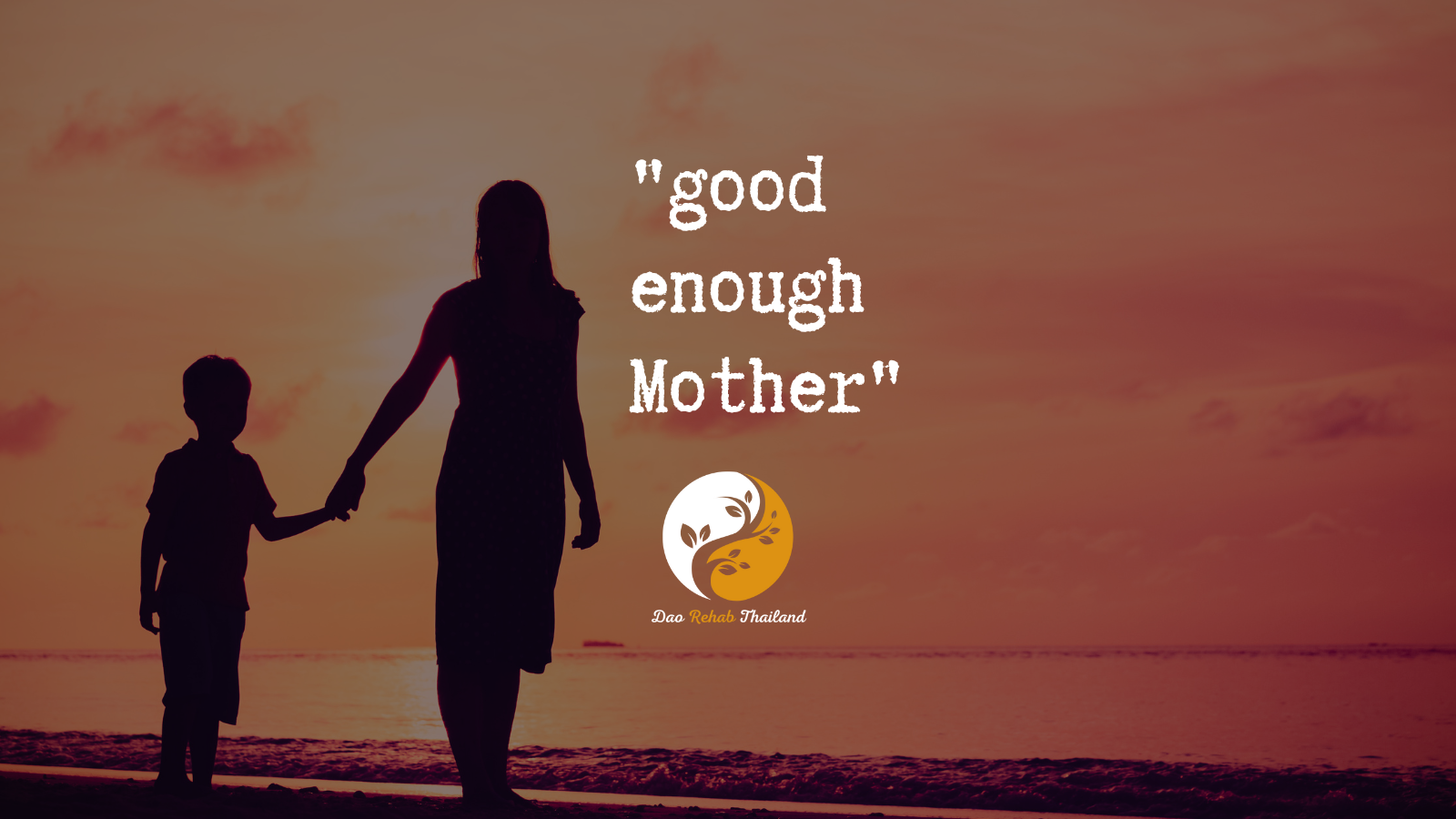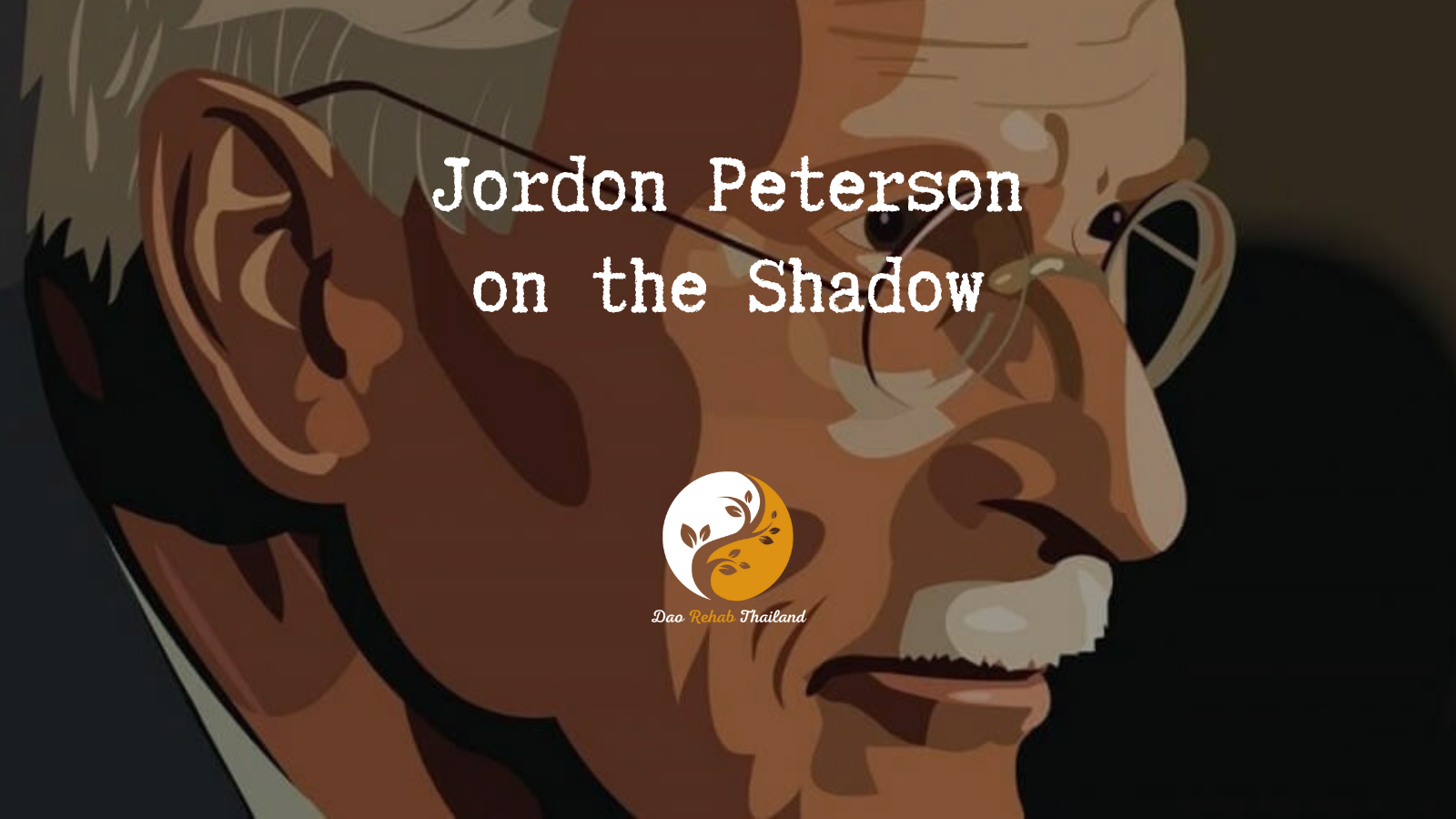
Why “Good Enough mother” and Not “Perfect”?
Why "Good Enough"
and Not "Perfect"?
Everything is possible

"Detox from Drugs at a Luxury Holistic Center in Thailand and Israel"

Why "Good Enough" and Not "Perfect"?
The concept of the “good enough mother” was introduced by the British pediatrician and psychoanalyst Donald Winnicott. It describes a mother (or primary caregiver) who provides adequate, but not perfect caregiving, allowing the child to develop a sense of independence and resilience.
Key Aspects of the “Good Enough Mother” Concept:
- Gradual Adaptation – At first, the mother meets the infant’s needs almost completely, fostering a sense of security.
- Allowing Frustration – Over time, she allows the child to experience small frustrations, helping them learn to self-soothe and tolerate distress.
- Encouraging Independence – By not being overly intrusive or protective, she supports the child’s natural development of autonomy.
- Emotional Availability – She is emotionally present and attuned, but not perfectly so, teaching the child to navigate emotional ups and downs.
"Holistic Center for Trauma, Addiction, and Mental Imbalance Treatment in Thailand"
“Come to the beginning of your journey to freedom from addiction to alcohol, drugs, and pills, and rediscover your life within the serene embrace of DaoTherapy Rehab in Thailand—where holistic healing meets empowering recovery.”
DaoTherapy Holistic Rehab
Key Elements of Drugs Detox:
Medical Supervision: Drugs detox must be conducted under medical supervision, as the body may experience withdrawal symptoms. These can include nausea, anxiety, muscle aches, and insomnia. A medical team will monitor and manage these symptoms to ensure the patient’s safety and comfort.
Holistic Therapies:
Holistic Therapies: Many detox programs incorporate holistic therapies such as mindfulness, yoga, and meditation to help individuals cope with stress and anxiety during the detox process. These therapies support the mind-body connection and contribute to overall recovery.
Tapering Process
Tapering Process: Drugs detox often involves a gradual tapering of the drug to reduce withdrawal severity. Doctors will slowly decrease the dosage over time to allow the body to adjust to lower levels of the substance.
Psychological Support:
Psychological Support: Like any addiction recovery process, detox from Drugs includes psychological support. This can involve counseling, therapy, or support groups to address the mental and emotional aspects of addiction.
Post-Detox Treatment:
Post-Detox Treatment: After completing detox, continuing treatment is crucial to prevent relapse. This often includes participation in ongoing therapy, group support, and the development of new coping strategies to maintain sobriety.
A perfect caregiver prevents a child from developing frustration tolerance and self-reliance.
Yes, a “perfect” caregiver, meaning one who always meets a child’s needs instantly and prevents any distress, can unintentionally hinder emotional and psychological development. While their intentions may be loving, shielding a child from all frustration deprives them of essential life skills.
Why a “Perfect” Caregiver Can Be Harmful to Development
Lack of Frustration Tolerance
- When a child never experiences small disappointments or delays, they don’t learn how to manage frustration.
- Later in life, they may struggle with impulse control, patience, and emotional resilience.
Dependence on External Comfort
- Always having problems solved for them can create emotional dependency.
- The child may seek constant validation or external solutions instead of developing internal coping mechanisms.
Reduced Problem-Solving Skills
- A child who is never allowed to struggle never learns how to solve problems independently.
- They might avoid challenges or become overwhelmed when faced with difficulties in adulthood.
Inability to Handle Discomfort
- Life naturally brings disappointments, uncertainty, and setbacks.
- If a child has never felt discomfort in a safe and manageable way, they may develop anxiety, avoidance behaviors, or unhealthy coping mechanisms (e.g., addiction, escapism).
The Role of the “Good Enough” Caregiver (Winnicott’s Concept)
Instead of being “perfect”, a good enough caregiver:
✅ Meets the child’s needs but allows small frustrations.
✅ Encourages gradual independence while still being supportive.
✅ Provides emotional availability without overprotecting.
✅ Helps the child develop self-reliance, emotional resilience, and patience.
Application in DaoTherapy and Addiction Recovery
Many addicts and trauma survivors struggle with frustration tolerance and self-reliance because their early caregivers either:
- Overprotected them, preventing them from learning how to cope.
- Neglected them, leading to emotional insecurity and unhealthy coping mechanisms.
Therapy in DaoTherapy focuses on teaching emotional regulation, rebuilding resilience, and fostering self-reliance by introducing gradual adaptation to discomfort in a safe environment.

contact us
Contact us with your questions
We would love to speak with you! Feel free to reach out with any questions.

get in touch
Schedule a free consultation
Schedule a free consultation with our team and let’s make things happen!
A neglectful caregiver causes insecurity and emotional distress.
How Neglect Affects a Child’s Development
Insecure Attachment
- When a child’s needs are not consistently met, they may develop an insecure attachment style (anxious, avoidant, or disorganized).
- They may struggle with trust, relationships, and emotional regulation later in life.
Chronic Emotional Distress
- Lack of emotional validation can lead to anxiety, depression, and low self-esteem.
- The child may internalize the belief: “I am not worthy of love or care.”
Difficulty Regulating Emotions
- Without a caregiver’s guidance, the child does not learn how to manage stress, frustration, or sadness.
- This can result in impulsivity, emotional outbursts, or shutting down completely.
Increased Risk of Addiction & Self-Destructive Behaviors
- Many trauma survivors turn to substances or compulsive behaviors to numb emotional pain.
- They may crave external validation because they never received consistent love and support.
Hyper-Independence or Extreme Dependence
- Some neglected children grow up to become hyper-independent, rejecting help because they learned no one is reliable.
- Others become clingy and emotionally dependent, fearing abandonment in relationships.
The Role of a “Good Enough” Caregiver (Winnicott’s Concept)
A good enough caregiver:
✅ Provides consistent emotional support without overprotecting.
✅ Encourages healthy independence while still being available.
✅ Teaches the child how to manage distress safely.
Application in DaoTherapy and Addiction Recovery
Many addiction and trauma survivors in DaoTherapy have experienced emotional neglect. Healing focuses on:
- Rebuilding trust in relationships.
- Learning emotional regulation and self-worth.
- Developing resilience without self-destruction.
A "good enough" mother finds a balance, providing love and care while allowing the child to experience and process small challenges.
Definition
The “good enough mother”, a concept introduced by Donald Winnicott, provides a secure and loving environment while gradually allowing the child to face small challenges. She supports but does not overprotect, fostering emotional resilience and independence.
Key Aspects of a “Good Enough” Mother
Providing Unconditional Love and Security
- The child knows that they are loved and safe, creating a foundation of trust.
- The caregiver is emotionally available, responding to distress but not overreacting.
Allowing Manageable Frustrations
- Instead of fixing every problem instantly, the mother lets the child struggle a little before stepping in.
- This teaches patience, emotional regulation, and problem-solving skills.
Encouraging Autonomy and Self-Reliance
- She guides the child rather than doing everything for them.
- Small tasks like tying shoes, eating independently, or solving minor conflicts help build confidence.
Teaching Emotional Regulation
- The mother helps the child name and process emotions rather than suppressing or avoiding them.
- This leads to healthy coping mechanisms and resilience in later life.
Psychological Benefits of a “Good Enough” Mother
✅ Builds Emotional Resilience – The child learns to handle small frustrations and setbacks.
✅ Fosters Healthy Independence – Developing self-confidence and a sense of mastery.
✅ Encourages Secure Attachment – The child trusts that they are supported but not controlled.
✅ Prepares for Real-World Challenges – Learning that life has both joys and struggles.
What Happens Without This Balance?
❌ Overprotection (“Perfect Parenting”)
- Leads to dependency, low frustration tolerance, and fear of failure.
❌ Neglect (“Unavailable Parenting”)
- Causes emotional insecurity, low self-esteem, and attachment issues.
Application in DaoTherapy and Addiction Recovery
Many individuals recovering from addiction and trauma have experienced caregivers who were either:
- Overprotective, leading to emotional fragility and avoidance of discomfort.
- Neglectful, causing deep emotional wounds and difficulty trusting others.
In DaoTherapy, healing involves:
- Developing self-trust and emotional independence.
- Learning to tolerate discomfort and process emotions in a healthy way.
- Breaking cycles of emotional dependency or avoidance.
Implications for Development
Winnicott believed that the good enough mother helps the child develop:
Definition
The True Self, a concept from Donald Winnicott’s psychoanalytic theory, refers to a person’s authentic, spontaneous, and deeply connected sense of being. It contrasts with the False Self, which is developed as a defense mechanism to meet external expectations.
Key Aspects of the True Self
Genuine Expression
- Acting in alignment with one’s inner values, emotions, and desires, rather than conforming to external pressures.
- Feeling comfortable being vulnerable and real rather than performing for approval.
Emotional Integrity
- Recognizing and honoring one’s feelings without fear of judgment.
- Living with self-acceptance, rather than suppressing or distorting emotions to fit in.
Inner Stability and Confidence
- A deep sense of self-worth that is not dependent on external validation.
- The ability to set boundaries and prioritize one’s well-being.
Freedom from the False Self
- The False Self develops when a person adapts too much to external demands, losing touch with their authenticity.
- The True Self emerges when a person lets go of masks and embraces who they truly are.
Psychological Benefits of Embracing the True Self
✅ Emotional Freedom – No longer feeling trapped by external expectations.
✅ Authentic Relationships – Connecting with others based on real emotions rather than pretense.
✅ Inner Peace – Reduced anxiety and self-doubt from trying to fit a false identity.
✅ Creativity and Self-Expression – More openness to spontaneous and creative living.
What Happens When the True Self is Suppressed?
❌ Living in the False Self – Constantly playing a role, leading to emptiness and disconnection.
❌ Emotional Exhaustion – Trying to meet external expectations instead of honoring personal truth.
❌ Addiction and Avoidance – Seeking external validation through unhealthy habits.
Application in DaoTherapy and Addiction Recovery
In DaoTherapy, the journey to authenticity is central to healing:
- Many trauma survivors and addicts lose touch with their True Self, relying on substances or behaviors to fill an inner void.
- Therapy helps reconnect with authenticity, allowing individuals to heal through self-acceptance and emotional honesty.
Psychological Support:
Psychological Support: Like any addiction recovery process, detox from Subutex includes psychological support. This can involve counseling, therapy, or support groups to address the mental and emotional aspects of addiction.
Emotional resilience
Definition
Emotional resilience is the ability to adapt, recover, and grow from stress, adversity, or trauma. It does not mean avoiding difficulties but rather developing the inner strength to face challenges without breaking down emotionally.
Key Aspects of Emotional Resilience
Emotional Regulation
- Managing feelings effectively rather than being overwhelmed by them.
- Accepting emotions instead of suppressing or reacting impulsively.
Cognitive Flexibility
- Adapting to changing circumstances and shifting perspectives when needed.
- Seeing failures as learning opportunities rather than personal defeats.
Self-Efficacy and Confidence
- Trusting one’s ability to cope with stress and overcome hardships.
- Developing healthy self-esteem and problem-solving skills.
Strong Support Systems
- Seeking and maintaining meaningful relationships with others.
- Understanding that resilience doesn’t mean handling everything alone.
Meaning-Making and Growth
- Finding purpose in struggles rather than feeling victimized.
- Developing personal wisdom and emotional depth through challenges.
Psychological Benefits of Emotional Resilience
✅ Reduces Stress and Anxiety – Able to handle pressure without chronic worry.
✅ Enhances Mental Health – Lower risk of depression, burnout, or emotional exhaustion.
✅ Improves Relationships – Greater ability to communicate and resolve conflicts.
✅ Promotes Long-Term Success – More perseverance in achieving goals despite setbacks.
What Happens Without Emotional Resilience?
❌ Emotional Fragility – Easily overwhelmed by stress, criticism, or failure.
❌ Avoidance or Numbing – Turning to unhealthy coping mechanisms (addiction, withdrawal).
❌ Chronic Anxiety and Depression – Inability to handle uncertainty or setbacks.
Application in DaoTherapy and Addiction Recovery
In DaoTherapy, emotional resilience is a key focus of healing:
- Addiction recovery requires resilience, as individuals face deep-rooted trauma and life challenges.
- Mindfulness and self-awareness help people develop calmness in adversity.
- Spiritual and psychological growth fosters the ability to withstand emotional storms without relapse or avoidance.
Healthy attachment and interpersonal skills
Definition
Healthy attachment refers to the ability to form secure and trusting relationships, beginning in early childhood and influencing interpersonal skills throughout life. It is the foundation for emotional security, communication, and social connections.
Key Aspects of Healthy Attachment
Secure Base & Emotional Safety
- A person with secure attachment feels safe expressing emotions and seeking support.
- They trust that relationships are reliable and emotionally available.
Effective Communication & Emotional Regulation
- Healthy attachment fosters open, honest communication without fear of rejection.
- A person can express needs and feelings while also respecting others’ emotions.
Balanced Independence & Connection
- They can maintain close relationships while also enjoying personal autonomy.
- They do not fear abandonment nor feel overly dependent on others.
Empathy & Social Understanding
- Strong interpersonal skills come from emotional intelligence and empathy.
- They can understand and respond to others’ needs while maintaining their own boundaries.
Psychological Benefits of Healthy Attachment
✅ Stronger Self-Esteem – Feeling loved and valued promotes confidence.
✅ Better Emotional Regulation – Able to manage stress and conflict effectively.
✅ Healthier Relationships – More stable, trusting, and supportive bonds with others.
✅ Lower Risk of Anxiety & Depression – Secure attachment is linked to greater emotional resilience.
What Happens Without Healthy Attachment?
❌ Insecure Attachment Styles:
- Anxious attachment – Fear of abandonment, emotional dependence.
- Avoidant attachment – Fear of intimacy, emotional distance.
- Disorganized attachment – Unstable relationships, difficulty trusting others.
❌ Struggles in Relationships:
- Difficulty with trust, intimacy, or communication.
- Fear of closeness or excessive dependence on others.
Application in DaoTherapy and Addiction Recovery
In DaoTherapy, healthy attachment is a key focus because:
- Many trauma survivors and addicts struggle with attachment wounds.
- Therapy helps repair attachment patterns, fostering trust and emotional security.
- Building healthy interpersonal skills supports long-term healing and social reintegration.
The ability to handle life's uncertainties and frustrations
Definition
The ability to handle uncertainties and frustrations refers to a person’s capacity to adapt, remain resilient, and navigate life’s unpredictability without becoming overwhelmed. It involves emotional regulation, cognitive flexibility, and a strong sense of self.
Key Aspects of Handling Uncertainty and Frustration
Emotional Regulation
- Managing emotions without impulsivity or avoidance.
- Accepting that discomfort is part of life without feeling overwhelmed.
Cognitive Flexibility & Adaptability
- Adjusting to new situations rather than resisting change.
- Understanding that uncertainty is not a threat but an opportunity for growth.
Patience and Tolerance for Discomfort
- Delayed gratification and the ability to sit with frustration.
- Avoiding the urge for immediate escape (e.g., addiction, impulsive decisions).
Problem-Solving and Perspective-Shifting
- Reframing challenges as learning experiences.
- Using rational thinking instead of emotional reactions.
Inner Stability and Self-Trust
- Confidence that one can handle difficulties.
- Letting go of the need for absolute control over life’s outcomes.
Psychological Benefits of Handling Uncertainty and Frustration
✅ Stronger Resilience – Ability to recover from setbacks without emotional collapse.
✅ Lower Anxiety and Stress – Less fear of the unknown.
✅ Better Decision-Making – More rational, thoughtful responses to challenges.
✅ Greater Emotional Independence – Less dependence on external validation or control.
What Happens Without This Ability?
❌ Emotional Fragility – Overwhelmed by small challenges.
❌ Impulsivity or Escape Mechanisms – Seeking instant relief through addiction or avoidance.
❌ High Anxiety & Fear of Change – Struggling with decision-making and uncertainty.
Application in DaoTherapy and Addiction Recovery
In DaoTherapy, the ability to handle life’s uncertainties is central to recovery:
- Many trauma survivors and addicts struggle with intolerance to discomfort and unpredictability.
- Therapy helps clients develop patience, resilience, and new coping strategies.
- Mindfulness, breathwork, and self-awareness replace reactivity and fear-driven behaviors.








